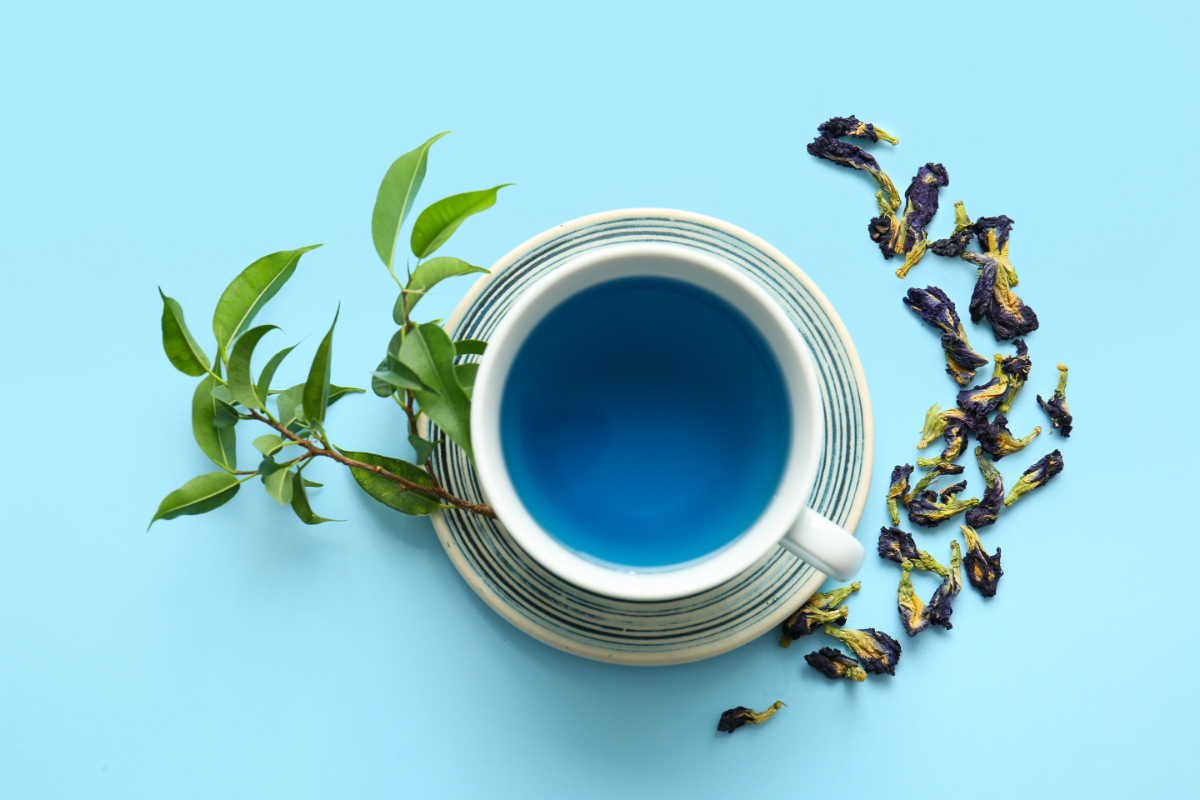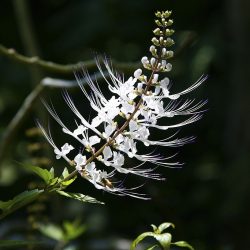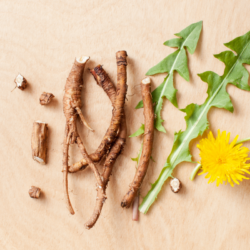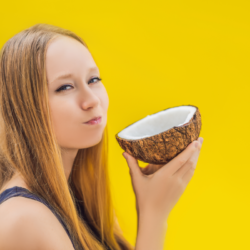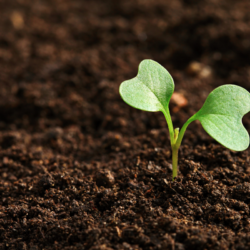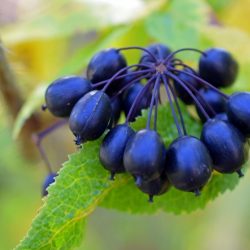Plants have been used since the dawn of time to relieve and cure various ailments. Crushed, in the form of tablets, capsules, powders, gummies, etc. Plant-based remedies have taken various forms over the ages. But the most popular form is still herbal tea. As well as being easy to consume, they make it easier to extract the active ingredients contained in medicinal plants. Focus on herbal teas: sources of numerous virtues!
History and tradition of medicinal plants in herbal teas
The use of medicinal plants in herbal teas is a heritage rich in tradition and history, spanning continents and eras. Since ancient times, civilisations have discovered and exploited the therapeutic properties of plants, incorporating these treasures of nature into their daily lives to heal, relieve and revitalise.
In China, the cradle of traditional medicine, herbal teas have been used for over 5,000 years. The Chinese pharmacopoeia lists hundreds of plants, each with its own specific characteristics, meticulously prescribed according to the principles of Yin and Yang balance. The writings of the emperor Shennong, considered to be the father of Chinese medicine, were among the first to classify herbs according to their therapeutic virtues.
In ancient Egypt, medical papyri such as the famous Ebers Papyrus bear witness to the use of herbal teas for medicinal purposes. The Egyptians favoured plants such as mint and camomile for their soothing and digestive effects, often offering them to the gods as a gesture of devotion to health and longevity.
In Europe, the monastic world played a key role in passing on knowledge about medicinal plants. Monks, often the guardians of ancestral knowledge, cultivated gardens of simple plants where they experimented with and documented the effects of herbs. The work of Saint Hildegard of Bingen, a 12th-century Benedictine nun, is a precious testimony to this herbal tradition.
The Amerindians also had a holistic approach to health, using herbal teas to harmonise body and mind. Plants such as echinacea, used to boost the immune system, or sweet clover for its calming effects, were an integral part of their traditional medicine.
Today, this age-old wisdom lives on in the herbal teas we consume. Brands like Pukka and Vitaflor draw on these traditions to create blends that combine ancient knowledge with contemporary advances, offering herbal teas that are beneficial to both body and mind.
Detox and slimming
In nature, it is possible to find plants and plant extracts that help to purify the body and slim down effectively. These include ginger, honey, elderberries, aniseed and rosemary. As well as being anti-inflammatory, they are also known to be excellent antioxidants. Eaten as herbal tea, they effectively eliminate toxins from the body. They cleanse the liver, improve renal elimination and reduce feelings of hunger. A real boost for our emunctories!
Where can you find them?
- The Vitaflor brand offers Vitaflor Minceur & Détox Bio: a detox herbal tea made with ginger, rosemary, couch grass root and elderberries. Pukka’ s Feel new organic herbal tea is a detox tea made with aniseed, turmeric, liquorice, fennel, cardamom and coriander.
- Relaxation and sleep herbal tea
There are various plants which, when ingested in the form of herbal tea, help you to fall asleep and relax. The best known are chamomile, oat flower, lavender, lime blossom and lemon balm leaves. When combined, some relieve anxiety and nervousness. Others calm and balance the nervous system. But their common virtue is the relaxing effect they have on the body and mind.
What are the benefits of couch grass in herbal tea form?
Quackgrass, often used as an herbal tea, has a number of health benefits:
- Natural diuretic: Quackgrass is known for its diuretic properties. It encourages the elimination of toxins and excess water from the body, which can be beneficial for people suffering from water retention or urinary disorders.
- Urinary tract support: Thanks to its diuretic and depurative properties, couch grass can help cleanse the urinary tract and prevent urinary tract infections.
- Digestion: This plant helps to ease digestion. It can be used to relieve various digestive disorders, such as bloating or constipation.
- Detoxifying properties : Quackgrass helps purify the blood and eliminate toxins, contributing to better overall health.
- Kidney Health Support: It is often recommended to support kidney function, helping to cleanse the kidneys and prevent the formation of kidney stones.
- Anti-inflammatory: This plant has anti-inflammatory properties, which can be useful for relieving conditions such as gout or other inflammations.
- Throat soother: Couch grass can also be beneficial for soothing sore throats and respiratory irritations.
All in all, couch grass in herbal tea form is a versatile natural remedy, appreciated for its many benefits for urinary, digestive and general health.
Where can I find quality herbal teas?
- The Pukka brand offers you Pukka Bio Tisane sommeil Nuit paisible: a sleep herbal tea made from chamomile, lavender, lime blossom and liquorice.
- The Vitaflor brand offers you Vitaflor Bio Sleep Herbal Tea: a sleep herbal tea containing lemon balm leaves, chamomile and lavender.
Focus on ginger
Herbal teas have long been appreciated for their medicinal properties. Among the ingredients frequently used, ginger stands out for its exceptional properties. Ginger’s main bioactive compound, gingerol, has been scientifically proven to have anti-inflammatory and antioxidant effects, offering protection against inflammation and oxidative stress.(1)(2)(3)
In addition, placebo-controlled studies have demonstrated ginger ‘s gastro-protective properties, notably by facilitating gastric emptying, which can help relieve symptoms of dyspepsia such as nausea, vomiting and gastric pain.
Ginger is also involved in the body’s metabolism. It has been observed that it can contribute to optimal weight management by slightly raising body temperature, thereby promoting increased calorie expenditure. Regular consumption may also help to reduce blood sugar and cholesterol levels, thereby helping to prevent metabolic diseases.
Finally, ginger is renowned for its high antioxidant content. These compounds play a crucial role in protecting cells from damage caused by free radicals, contributing to overall health and well-being.
Which herbal tea for digestive comfort?
Bloating, indigestion, constipation… A number of digestive problems can be solved with these healthy beverages. You have access to a range of plants such as spearmint, lemongrass, lemon balm and fennel. These ingredients promote transit, improve digestion and have a relaxing effect on digestive problems.
Where can you find them?
- The Pukka brand offers Pukka Bio Tisane digestion 3 menthes: a digestive herbal tea made from peppermint, spearmint and spearmint.
- The Vitaflor brand offers Vitaflor Organic Herbal Tea 4 Digestive Stroll: digestive herbal tea containing spearmint, lemongrass, fennel, lemon balm and star anise.
What are the benefits of mint for digestion?
Mint is widely recognised for its digestive properties. Frequently used in herbal teas, it acts as a powerful antispasmodic, soothing stomach muscles and helping to reduce spasms and bloating. This plant also promotes good digestion by stimulating the secretion of bile, which is necessary for digesting fats. Its carminative properties help expel gas from the digestive system, relieving discomfort and feelings of heaviness. Mint is also effective against nausea and motion sickness, thanks to its refreshing effect and soothing aroma. It is therefore particularly recommended after a heavy meal or for people suffering from mild digestive problems. In short, mint is an essential component of health herbal teas, providing both freshness and digestive benefits.
What are the virtues of star anise?
Star anise, also known as badiane, is a spice with a distinctive aromatic profile and many medicinal properties. Here are some of its main properties:
- Digestive properties: Star anise is reputed to aid digestion. It helps relieve bloating and gas, and improves digestion in general.
- Antispasmodic effect: It is effective in relieving muscle spasms, particularly in the digestive tract, helping to soothe stomach cramps.
- Antimicrobial properties: Star anise contains compounds that can help fight certain types of bacteria and fungi, boosting the immune system.
- Respiratory Tract Relief: It is often used to relieve respiratory ailments such as coughs and bronchitis, due to its expectorant properties.
- Soothing effect: Star anise can help reduce stress and anxiety thanks to its relaxing properties. It is often used in herbal teas to promote relaxation and sleep.
- Rich in antioxidants: This spice contains antioxidants that help fight free radical damage, contributing to overall health and the prevention of premature ageing.
This makes star an invaluable ingredient, both for its unique flavour and for its many health benefits.
Which herbal tea should I choose for respiratory comfort?
Mother Nature helps us breathe thanks to plants. In fact, as well as giving us oxygen, certain plants have beneficial properties for our respiratory system. Colds, blocked noses, sore throats… Whatever the ailment, thyme, mallow, elderberry and eucalyptus will give you relief. Thyme, Mallow, Elderberry and Eucalyptus have the ability to effectively clear the respiratory tract and soothe irritation and inflammation of the pharynx.
Where can you find them?
- The Vitaflor brand offers Vitaflor Bio Respiratory Comfort Herbal Tea: respiratory comfort herbal tea made from thyme, rosehip, mallow, eucalyptus and elderberry.
Herbal teas have countless benefits. Brands like Pukka and Vitaflor are constantly proving this with new formulas. Thanks to them, you have access to beverages that promote serenity, joint comfort, breastfeeding, energy and much more.
What are the benefits of rosehip in herbal tea form?
Rosehip, also known as the ‘fruit of the rosehip’, is highly prized in herbal teas for its many virtues:
- Rich in Vitamin C: Rosehip is one of the richest natural sources of vitamin C, making it an excellent ally for boosting the immune system and fighting colds and other infections.
- Antioxidant properties : Thanks to its high antioxidant content, rosehip tea helps to combat free radicals, thus contributing to the prevention of cell ageing and the overall health of the body.
- Digestive support: Rosehip can help improve digestion and relieve mild digestive disorders thanks to its mildly laxative properties.
- Anti-inflammatory: It has anti-inflammatory properties which may be beneficial in the treatment of inflammation and joint pain.
- Skin Health Support: Rosehip’s richness in vitamin C and antioxidants also contributes to skin health, promoting regeneration and elasticity.
- Relief from Urinary Disorders: Rosehip tea can be useful for relieving certain urinary disorders, thanks to its diuretic properties.
- Cardiovascular benefits: The antioxidants present in rosehip also help maintain cardiovascular health by reducing cholesterol oxidation and improving blood circulation.
In short, rosehip in herbal tea form offers a range of benefits, from boosting the immune system to improving digestive and skin health, as well as having anti-inflammatory and cardiovascular effects.
References
- https://www.healthline.com/nutrition/11-proven-benefits-of-ginger
- https://www.webmd.com/vitamins/ai/ingredientmono-961/ginger
- https://www.lanutrition.fr/les-atouts-sante-du-gingembre

